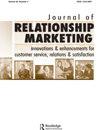Digital Orientation and Company’s Performance. The Mediating Role of Relational Capacity
Q2 Business, Management and Accounting
引用次数: 0
Abstract
Abstract Digital transition is an inevitable process for most of the companies. Transforming the operating activities, the internal processes or enhancing the relationships with the customers is vital for business success. However, the existing literature reveals gaps on how digital orientation and relational capacity can lead to performance gains. The study proposes a conceptual model by which companies’ digital orientation can lead to superior financial and non financial performance with the mediating role of relational capacity. Based on a sample of 224 companies the model was tested and validated through the Structural Equations Model. The results show that relational capacity is a key mediating variable between digital orientation and financial and nonfinancial performance. The study offers practical implications for companies about the importance of design digital marketing strategies to engage with customers if the company wants to increase performance. Moreover, the study stresses the value of maintain strong and durable relationships with customers and partners to enhance the relational capacity of companies. The theoretical contribution derives from testing a model that adds empirical evidence to the current state of knowledge and that could be used in future studies.数字化方向与公司绩效。关系能力的中介作用
本文章由计算机程序翻译,如有差异,请以英文原文为准。
求助全文
约1分钟内获得全文
求助全文
来源期刊

Journal of Relationship Marketing
Business, Management and Accounting-Marketing
CiteScore
10.20
自引率
0.00%
发文量
7
期刊介绍:
The Journal of Relationship Marketing is a quarterly journal that publishes peer-reviewed (double-blind) conceptual and empirical papers of original works that make serious contributions to the understanding and advancement of relationship and marketing theory, research, and practice. This academic journal is interdisciplinary and international in nature. Topics of interest (not limited to): Evolution and life cycle of RM; theoretical and methodological issues in RM; types of RM, networks and strategic alliances; internal communication, quality, trust, commitment, satisfaction, loyalty, and dissolution in RM; applications of RM in different disciplines and industries; international perspectives in RM; RM strategies in services economy, higher education, and e-commerce; RM, technology, and the Web; profitability and RM; case studies and best practices in RM. If you are interested in becoming an ad-hoc reviewer, please e-mail a brief statement indicating your area of expertise and interest along with a copy of your CV.
 求助内容:
求助内容: 应助结果提醒方式:
应助结果提醒方式:


